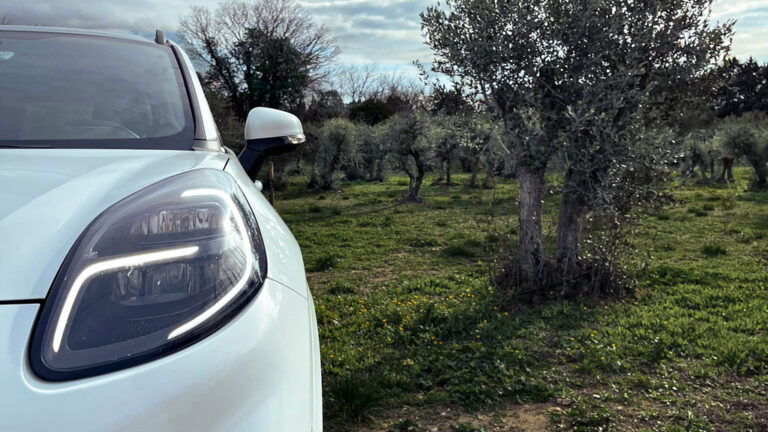Olive trees produce a fruit used for snacks, oils and tapenades globally. To promote sustainability, Ford has investigated utilizing discarded olive tree branches, twigs and leaves for manufacturing eco-friendly automobile components.
Explored within the framework of the COMPOlive project, dedicated to fostering environmental improvements in olive production, replacing plastics with biocomposites and supporting the circular economy, the initiative aimed to repurpose olive tree waste to create auto parts. This would reduce plastic usage in these components and mitigate air pollution resulting from traditional waste disposal methods like burning.
During the trial, which ran from 2020 to 2023, engineers successfully crafted prototype footrests and sections of the car’s boot area using olive tree waste. Testing has demonstrated the durability and strength of these parts. Ford is now in the process of evaluating the feasibility of mass production, potentially contributing to the development of the next generation of electric vehicles.
Olive tree waste for this project was sourced from Andalusia, Spain, the world’s leading olive oil production region. Ford engineers at the European headquarters in Cologne, Germany, employed simulation technology to assess the viability of olive tree materials in terms of durability, strength and moldability. The prototypes, composed of 40% fibers and 60% recycled polypropylene plastic, were created through a heating and injection molding process.
Inga Wehmeyer, project lead at Ford, said: “In using the waste from olive trees, we have been able to substitute a significant amount of petroleum-based raw material in the interior parts. The sustainable fibers create a unique surface appearance and would be directly visible to our customers.”
Thomas Baranowski, injection molding expert, added: “In order to get the mix just right, we had to experiment with different ratios of waste material and polypropylene. It was hard work, but it ultimately enabled us to produce a material that shows no compromise in strength, durability, or flexibility.”
For more Ford news, click here



